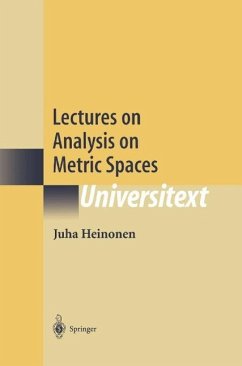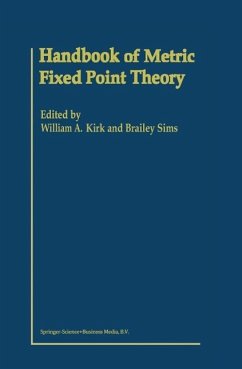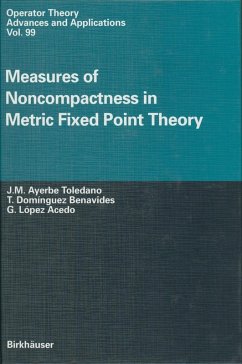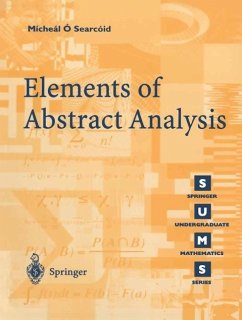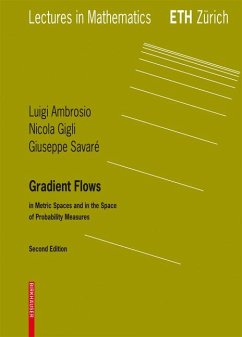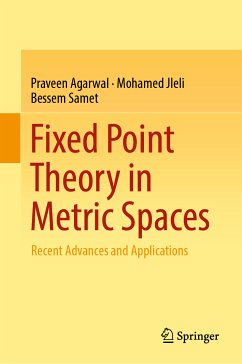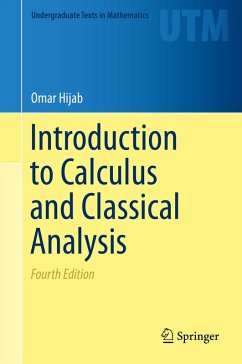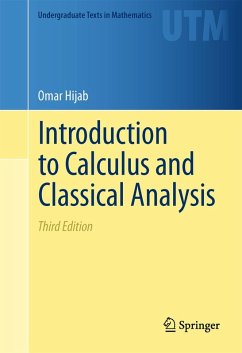
Metric Spaces (eBook, PDF)
Versandkostenfrei!
Sofort per Download lieferbar
30,95 €
inkl. MwSt.
Weitere Ausgaben:

PAYBACK Punkte
15 °P sammeln!
The abstract concepts of metric ces are often perceived as difficult. This book offers a unique approach to the subject which gives readers the advantage of a new perspective familiar from the analysis of a real line. Rather than passing quickly from the definition of a metric to the more abstract concepts of convergence and continuity, the author takes the concrete notion of distance as far as possible, illustrating the text with examples and naturally arising questions. Attention to detail at this stage is designed to prepare the reader to understand the more abstract ideas with relative eas...
The abstract concepts of metric ces are often perceived as difficult. This book offers a unique approach to the subject which gives readers the advantage of a new perspective familiar from the analysis of a real line. Rather than passing quickly from the definition of a metric to the more abstract concepts of convergence and continuity, the author takes the concrete notion of distance as far as possible, illustrating the text with examples and naturally arising questions. Attention to detail at this stage is designed to prepare the reader to understand the more abstract ideas with relative ease.
The book goes on to provide a thorough exposition of all the standard necessary results of the theory and, in addition, includes selected topics not normally found in introductory books, such as: the Tietze Extension Theorem; the Hausdorff metric and its completeness; and the existence of curves of minimum length. Other features include:
The book is designed for third- and fourth-year undergraduates and beginning graduates. Readers should have some practical knowledge of differential and integral calculus and have completed a first course in real analysis. With its many examples, careful illustrations, and full solutions to selected exercises, this book provides a gentle introduction that is ideal for self-study and an excellent preparation for applications.
The book goes on to provide a thorough exposition of all the standard necessary results of the theory and, in addition, includes selected topics not normally found in introductory books, such as: the Tietze Extension Theorem; the Hausdorff metric and its completeness; and the existence of curves of minimum length. Other features include:
- end-of-chapter summaries and numerous exercises to reinforce what has been learnt;
- extensive cross-referencing to help the reader follow arguments;
- a Cumulative Reference Chart, showing the dependencies throughout the book on a section-by-section basis as an aid to course design.
The book is designed for third- and fourth-year undergraduates and beginning graduates. Readers should have some practical knowledge of differential and integral calculus and have completed a first course in real analysis. With its many examples, careful illustrations, and full solutions to selected exercises, this book provides a gentle introduction that is ideal for self-study and an excellent preparation for applications.
Dieser Download kann aus rechtlichen Gründen nur mit Rechnungsadresse in A, B, BG, CY, CZ, D, DK, EW, E, FIN, F, GR, HR, H, IRL, I, LT, L, LR, M, NL, PL, P, R, S, SLO, SK ausgeliefert werden.



